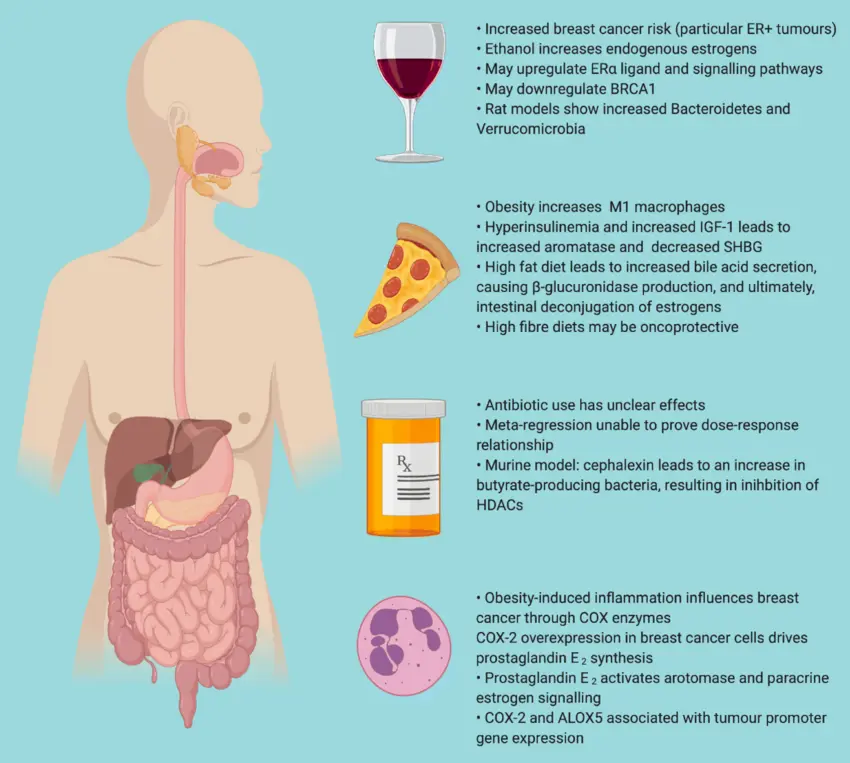Metabolomics is the comprehensive study of small molecules metabolites within cells, tissues, or biological fluids. In breast cancer research, metabolomics is emerging as a powerful tool to uncover how cancer alters normal metabolic pathways, revealing potential biomarkers for early detection, prognosis, and therapy monitoring.

Why Metabolomics Matters in Breast Cancer
Breast cancer cells undergo profound metabolic reprogramming to support uncontrolled growth. Unlike normal cells, cancer cells:
Prefer aerobic glycolysis (Warburg effect) even when oxygen is sufficient, leading to increased lactate production.
Alter lipid metabolism to fuel rapid membrane synthesis.
Modify amino acid utilization (e.g., glutamine addiction) to support biosynthesis and redox balance.
Metabolomic Technologies
To study these changes, scientists use advanced analytical platforms:
Nuclear Magnetic Resonance (NMR) Spectroscopy non-destructive, quantitative, but less sensitive.
Mass Spectrometry (MS) coupled with Gas Chromatography (GC) or Liquid Chromatography (LC) highly sensitive and capable of profiling hundreds of metabolites.
Capillary Electrophoresis–Mass Spectrometry (CE–MS) excellent for polar metabolites and charged molecules.
Key Metabolic Alterations in Breast Cancer
Increased glycolysis intermediates (e.g., glucose-6-phosphate, pyruvate, lactate).
Elevated choline-containing compounds (phosphocholine, glycerophosphocholine) indicating increased membrane turnover.
Altered lipid profiles especially phosphatidylcholines, sphingolipids, and fatty acids.
Disturbed amino acid metabolism higher levels of glutamine, serine, glycine, and branched-chain amino acids.
